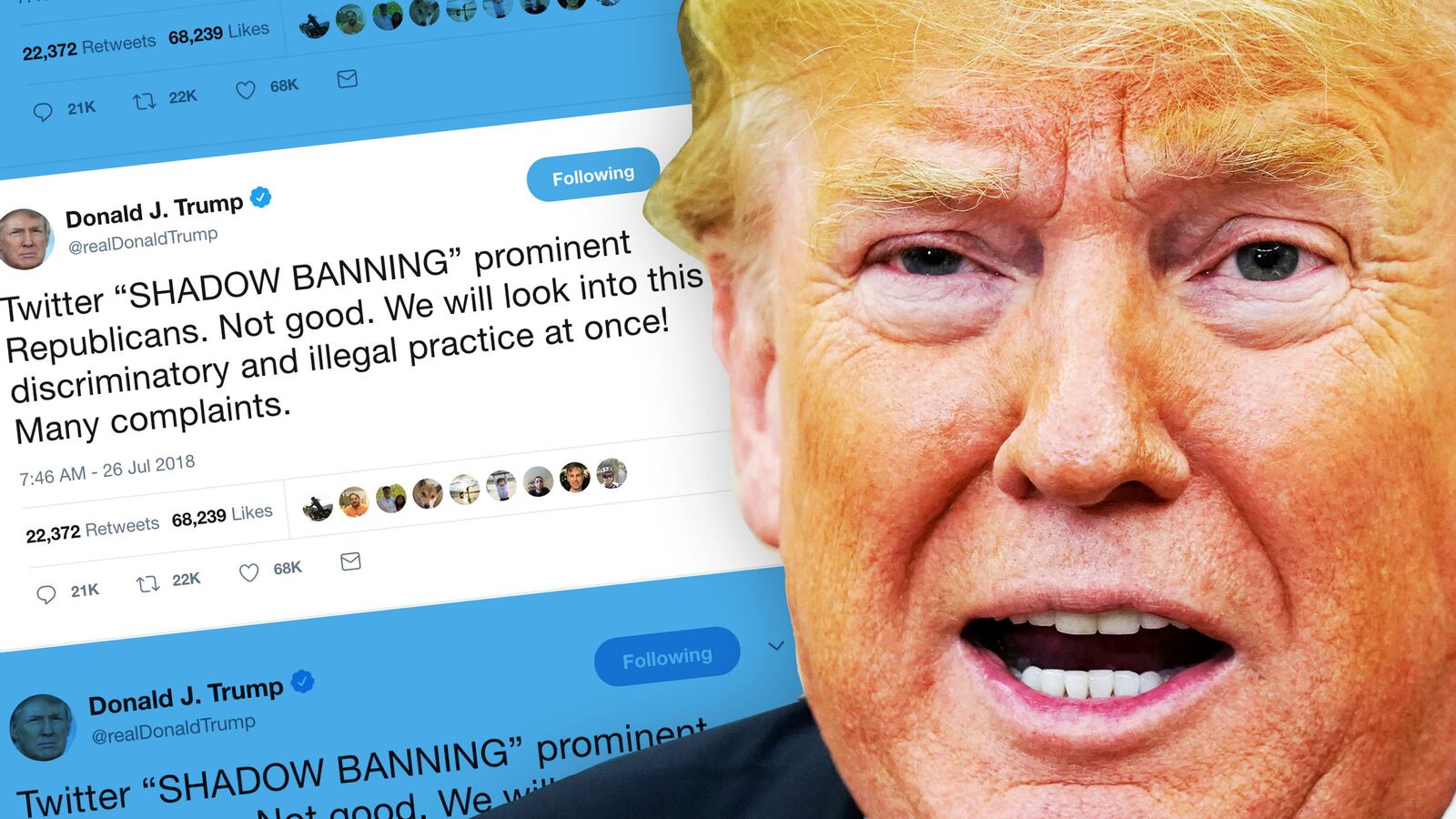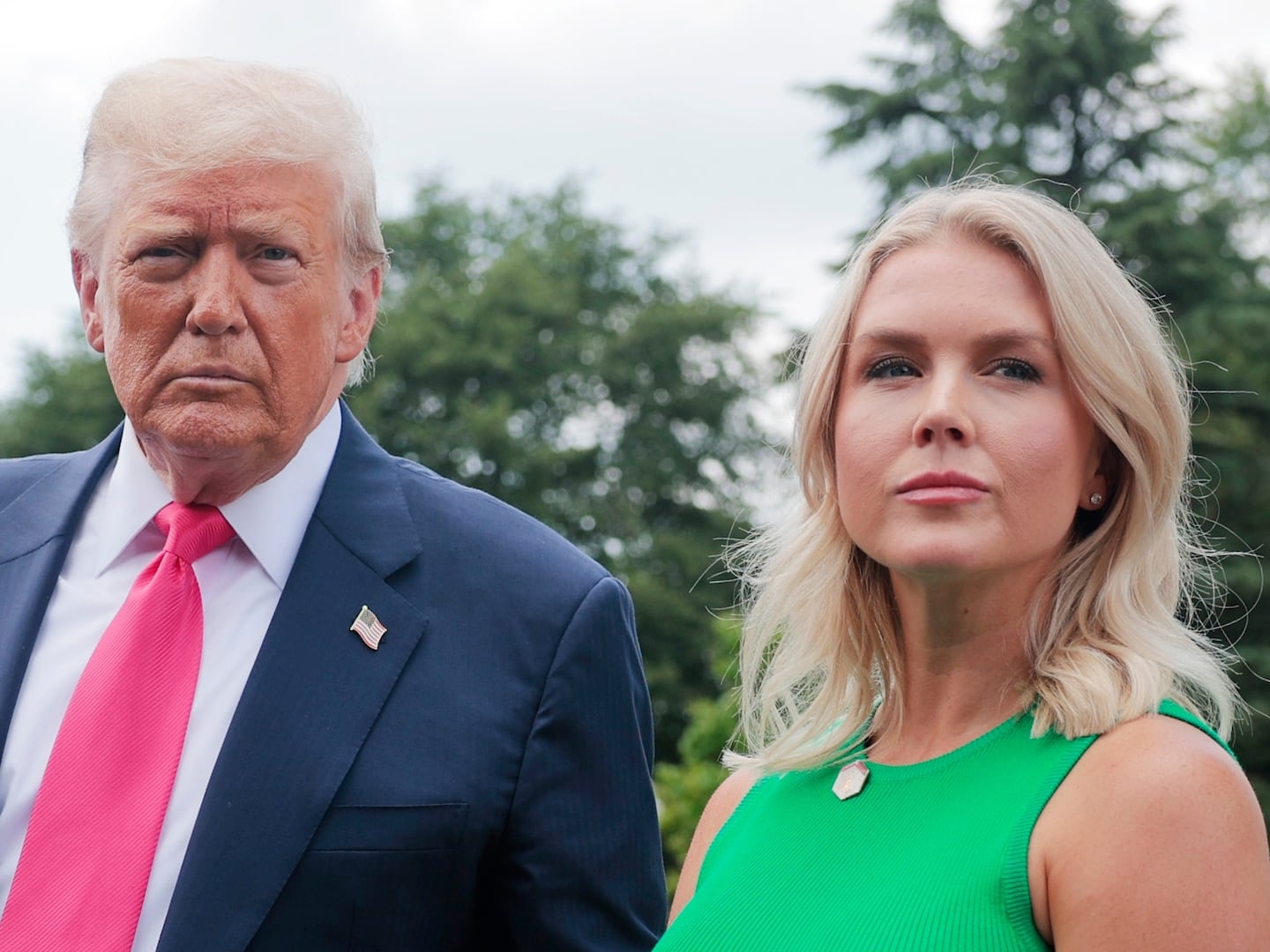President Donald Trump pumped up conservatives’ complaints about social media companies on Thursday, accusing Twitter of “SHADOW BANNING” Republicans and promising an inquiry into the “illegal practice.”
But before any investigation, Trump should learn what shadow banning actually is.
Trump’s tweet appears to have been prompted by a Vice News story that reported that Republican figures like the head of the Republican National Committee and the spokesman for Donald Trump Jr. no longer appeared in the auto-complete search suggestions for their names. Twitter users could still find them if they actually did the search: Twitter was just no longer auto-suggesting them. Twitter blamed the issue on a mistake in site filters aimed at detecting bad or troll accounts and said it plans to return the Republicans to the auto-complete search results.
Vice’s story claimed that this slightly lower search visibility, which has affected various fringe internet personalities over the past week, amounts to a “shadow ban.” But while it’s now a little bit harder to find those accounts, this doesn’t amount to shadow-banning.
A “shadow ban” is a stealthy way to limit a problem user’s reach on a platform without setting off the kind of drama that outright deleting an account might. Instead of being banned, a social media user’s account is just hidden from the rest of the site so no one else can interact with it.
Twitter has repeatedly denied practicing shadow-banning, and there’s no evidence that the site shadow bans users. Still, fears about being shadow banned are widespread in right-wing media.
While conservatives have long grumbled about shadow banning, the concept really broke through on the right in January, when operatives working for right-wing prankster James O’Keefe surreptitiously videotaped current and former Twitter employees discussing the concept of shadow banning. Since then, it’s become a go-to complaint for right-wing personalities disappointed with how much engagement they’re getting on a platform.






